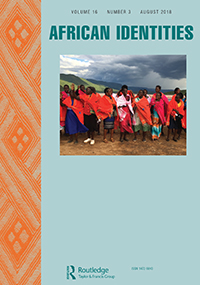Embracing the mobile phone technology: its social and linguistic impact with special reference to Zimbabwean Ndebele
Mobile phone technology has revolutionised the art of communication across all societies. Access to this form of communication has made personal contact much easier than before, with mobile phone networks in many countries now reaching rural areas where fixed telephones were rare. However, the popularity of mobile phones and mobile text messaging has come to evoke excessive hype and hysteria about the kinds of cultural, social and psychological impacts that the new technology is having. Central among these is the concern about the way that standard use of language and conventional linguistic and communicative practices are affected. The mobile phone presents one area of study in which language change is evident. This article highlights how the mobile phone has been embraced among the Ndebele speaking people of Zimbabwe by discussing, among other things, the SMS language, turn-taking in telephone conversation and naming around the mobile phone. Having done that, it argues that the gadget is not solely responsible for all the undesirable linguistic and communicative developments mainly because mobile phone users are at times able to control technology.

